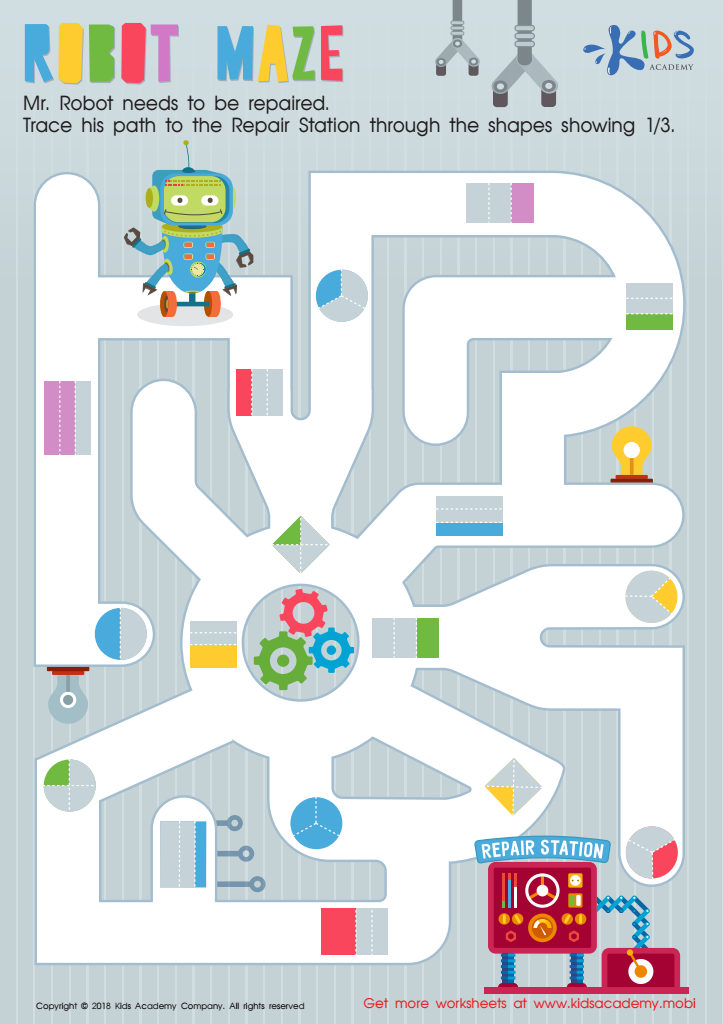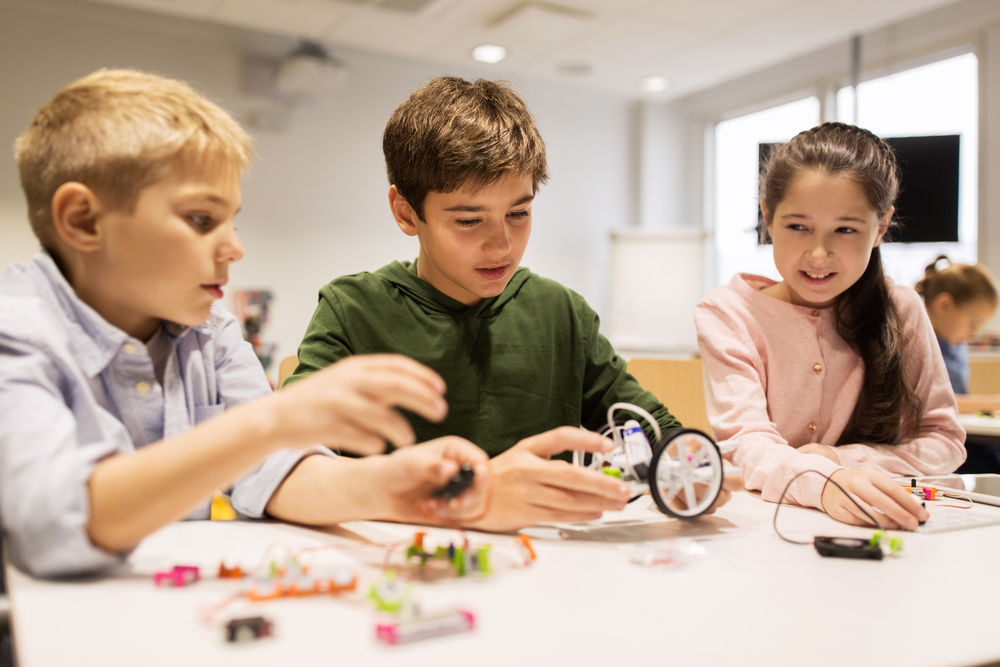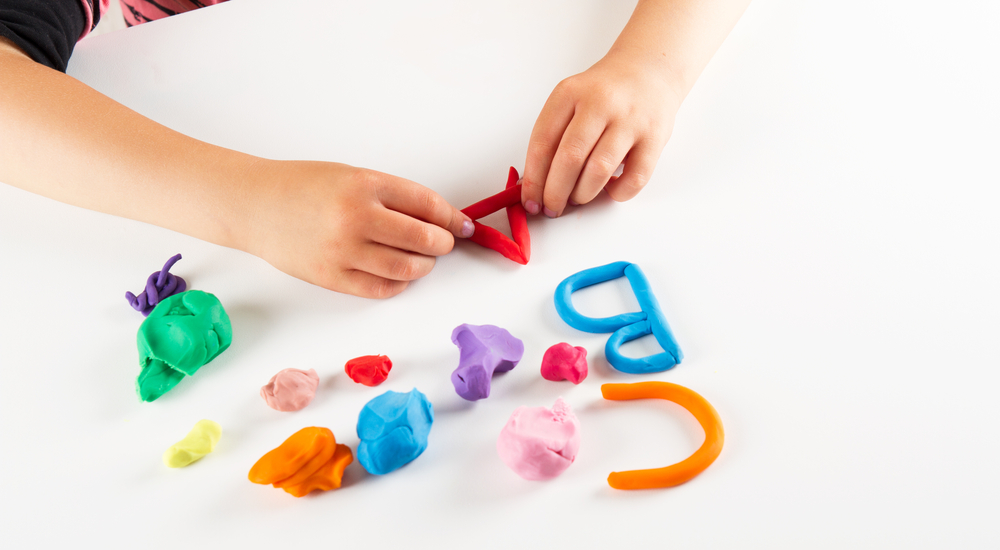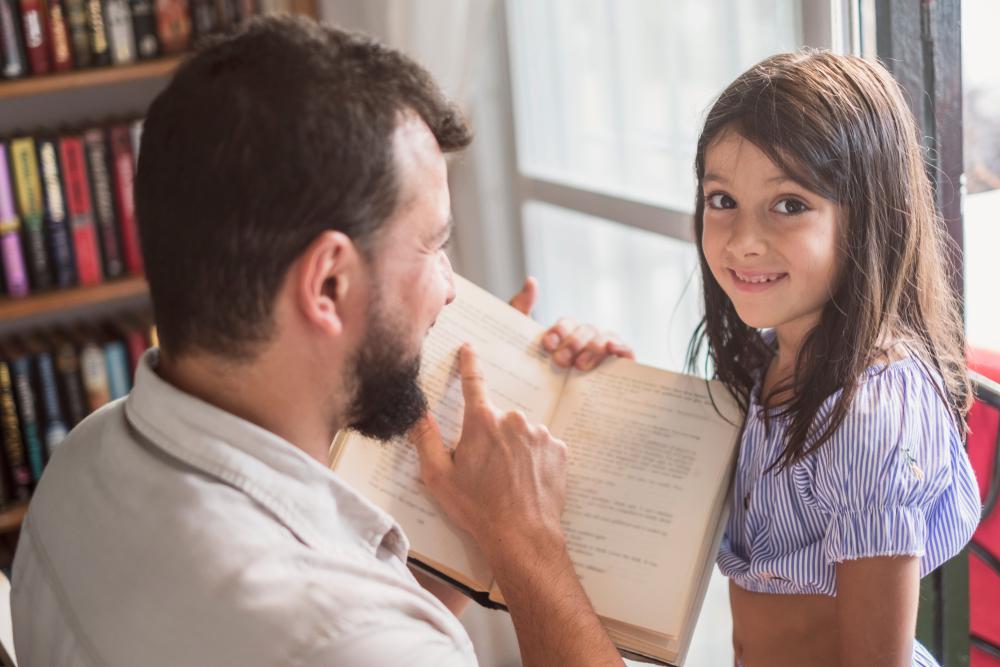Spatial reasoning practice Worksheets for Kids
1 filtered results
-
From - To


Robot Maze Worksheet
Question/Answer
How does the mastery of the Spatial reasoning practice skill affect a student's performance at an early age?
Mastery of spatial reasoning skills at an early age significantly enhances a student's performance by improving their problem-solving abilities, understanding of mathematical concepts, and capacity to comprehend and manipulate objects in space.
What does the Spatial reasoning practice skill mean when it comes to Grade 3 Geometry learning?
Spatial reasoning practice in Grade 3 Geometry involves developing the ability to visualize, manipulate, and reason about shapes and space. It includes recognizing patterns, understanding the properties and relationships of geometric figures, and solving problems related to the size, shape, and position of objects. This skill is fundamental for building a strong foundation in geometry for young learners.
How to train the Spatial reasoning practice skill in Grade 3 students learning about Geometry?
To train spatial reasoning in Grade 3 students, incorporate hands-on activities like building models with blocks or Legos, using puzzles that require recognizing shapes and patterns, drawing shapes and their transformations (rotation, reflection, scaling), and navigating mazes.
 Assign to the classroom
Assign to the classroom












